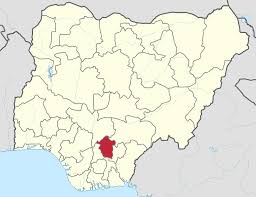The Enugu State House of Assembly has concluded its second session of the 8th Assembly, during which it passed 23 executive bills and 14 motions. The Speaker, Rt. Hon. Uche Ugwu, made the announcement during plenary on Wednesday, marking the end of the session and setting the stage for the third legislative session scheduled to begin on June 24, 2025. Ugwu highlighted key bills that were passed, including the Enugu State Electricity Regulatory Bill, the New Enugu City Management Bill, and the Enugu State Geographic Information System (EGIS) Bill. He also noted the importance of motions that addressed immediate concerns such as the removal of military checkpoints on the Ugwuonyeama/Ninth Mile Road and the restriction of Federal Road Safety Corps operations to federal highways rather than state roads.
One of the most significant developments in the session was the progress of a new bill focused on internal security. The bill, titled “A bill for a law to provide for the maintenance of Internal Security, Vigilance and Order in the State and for Other Connected Purposes,” passed its second reading. The proposed legislation drew wide support from lawmakers who argued that it would significantly reduce insecurity and help regulate abuses carried out under the guise of religion and traditional practices. Hon. Iloabuchi Aniagu of Nkanu West stated that the bill could cut insecurity by 60 percent and resolve ongoing conflicts between traditional rulers and town union leaders over who controls local security.
Hon. Harrison Ogara of Igbo-Eze South recounted disturbing incidents in his constituency, including the killing of four children by a man claiming to be a religious leader and another case where a native doctor was found to have buried victims alive. He expressed regret that such legislation had not been passed earlier, believing it could have prevented such tragedies. Hon. Chima Obieze of Ezeagu lamented the unchecked criminal activities by religious and traditional practitioners and voiced support for portions of the bill that aim to regulate their actions. Hon. Okey Aneke of Udi South raised concerns about the growing trend of young people turning to ritualism and kidnapping, urging that anyone found with human body parts should be prosecuted without exception. He noted that many so-called traditional practices involving “Okeite” rituals often involve human remains.
Hon. Osita Eze of Oji River condemned the environmental and moral degradation caused by native doctors who perform public animal sacrifices and leave blood and feathers strewn around streets and water fountains. He called for firm penalties against those who engage in rituals involving human parts and supported the bill’s aim to restore order and dignity to public spaces. Across the board, lawmakers emphasized the urgency of implementing the proposed internal security law and urged the state executive to act swiftly once it is enacted.



